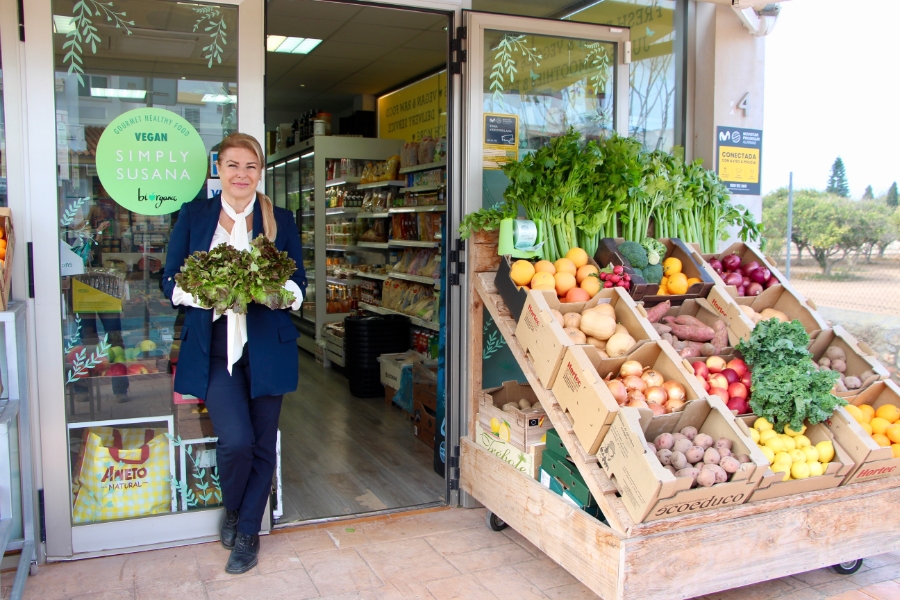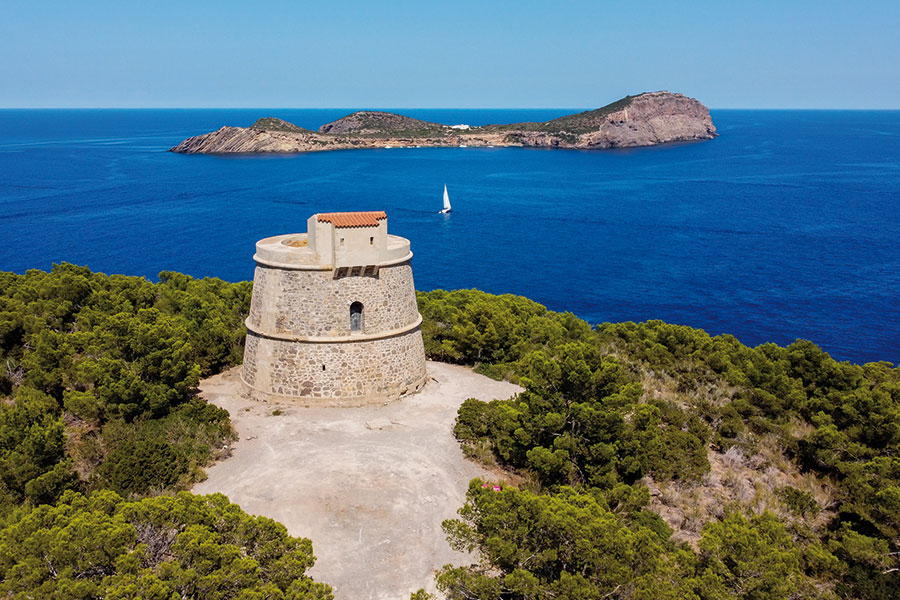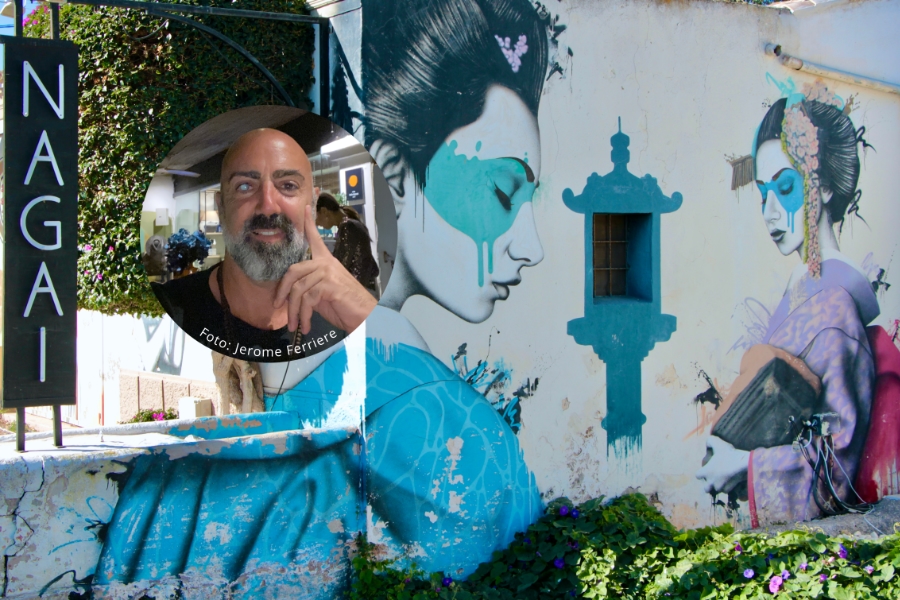Published in Ibicasa Magazine on 15/10/2024

Having enough fresh water has always been a challenge here on Ibiza, but the island has historically recovered from its long dry summers during the wetter, less busy months. However, during the past two decades greater consumption during the tourist season has depleted the aquifers (underground lakes) to such an extent that the natural rainfall has not been enough to refill them. This past summer the water reserves once again went down to a dangerously low level, and some communities had to invoke restrictions. To understand what can be done to fix this situation, we need to look at both sides of the problem: where the supply of water on Ibiza comes from, and how it can be used more efficiently.[Feature-2.jpg]
Ibiza has two sources of fresh water: the aquifers and water produced through desalination plants. The aquifers are supplied by rainwater which seeps into the ground, and while it is true that Ibiza is relatively dry, we still receive a significant amount of rain. In fact, the average annual rainfall is about 220 billion litres per year. However, much of that rainwater runs off into the sea and never gets to the underground aquifers, so we need better ways to capture and save it. The solution is to establish a coordinated rainwater management system using methods that have worked in other places with a similar problem. Channels can be constructed that direct the water to storage tanks and reservoirs, or to places where it will easily go into the ground. Building regulations can make it mandatory to have rainwater collection facilities in all new construction. This and other sensible measures would direct much more of our precious rainfall into the aquifers. However, demand may continue to rise so we must also look to other sources of water.
Being an island it makes sense to produce fresh water from the abundance of seawater that surrounds us. There are three desalination treatment plants on the island - San Antonio, Santa Eulalia, and Ibiza town. These operate at close to 100% capacity during the busy season, but produce much less in the low season when there is lower demand. One way to take pressure off of the aquifers is for these desalination plants to run at full power all year. The excess water produced in the low season could be diverted to farms and other uses that would otherwise be draining the aquifers. In addition, the construction of a fourth desalination plant would allow the island to keep pace with its growth. Another way to increase our supply is to repair the water distribution system. In many parts of the island over 30% of the available water is leaking out of the pipes before it reaches households and businesses. The government has done a lot of work over the past decade to improve this situation, but the need to update old infrastructure continues. [Feature-3.jpg]
Boosting our supply is necessary, but we must also consider the other side of the equation which is our consumption. In this regard it is helpful to look at the innovative ideas that other areas around the world have used to make their consumption sustainable. One very effective tool is charge a progressively higher rate for excess usage. The government has set a target rate for consumption of 100 litres per person per day. Water is an essential necessity of life, so this basic amount would be billed at the lowest possible price. For those who use more than the basic amount the price for that extra usage would go up progressively - the more they use the higher the price per litre. Using lavish amounts of fresh water for pools, fountains, etc., would come at a very high cost. This would discourage wasteful use, and the extra money collected could be spent on improving our water infrastructure.
Another policy that has had great success in other countries is to encourage the use of drip irrigation for both homes and farms. Using this method saves huge amounts of water by allowing it to drip slowly into the roots of plants. It is also important to enlighten the public about the importance of conserving water. Helping people to be more aware has worked well to solve other problems such as the decrease in smoking and increased waste recycling. Using less water not only makes you a good citizen, it also saves money on your water bills.[Feature-5.jpg]
The Balearic government is well aware of our problem, and it has a new Hydrological Plan which is intended to strengthen control over large consumers. Before 2027, all municipalities must implement a water saving ordinance that mandates the following measures: reusing water from backwashing swimming pools; washing all rental cars using a water reuse system; using treated water for agriculture instead of draining the aquifers. In addition, the regional government has a budget of 34 million euros for new water projects on Ibiza. About half of this money will go to greatly expanding the Santa Eulalia desalination plant. It will also pay for preliminary studies to construct a fourth desalination plant, most likely in Sant Josep. The project will install a digital control system for all large consumers, including villas. This will make it possible to know in real time whether water is being used illegally. According to the president of the Ibiza Council, Vicent Marí, “Abusive use will be monitored and it will be known who is wasting it.” There will also be increased control over extractions from the ground, and no new wells will be authorized.
These new measures will be helpful, but they need to go hand in hand with policies that address the core issue at the heart of the problem - too many people. The continual increases in both tourist arrivals and new buildings have put an unsustainable burden on our island’s resources. With a properly managed water supply Ibiza can handle a large number of seasonal visitors - but that number is not unlimited. Fortunately the government and the business community are realizing that more is not always better. Together they are making concerted efforts to keep tourism at a sustainable level, so that we can preserve the quality of life on our beautiful island.


.jpg?locale=en)

